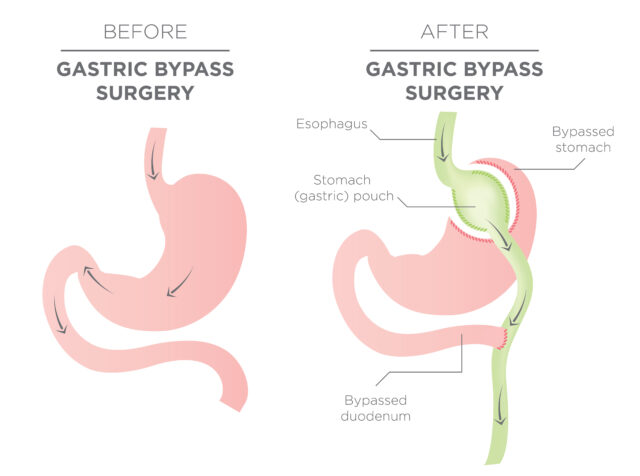Gastric Bypass Surgery: Benefits, Risks & What to Expect What Is Gastric Bypass Surgery?
Gastric bypass surgery is a leading type of bariatric weight loss surgery that helps people achieve long-term weight loss and better health. The procedure reduces the size of your stomach and reroutes part of your digestive tract. This means you feel full sooner, eat less food, and absorb fewer calories.
How Does Gastric Bypass Work?
- Stomach reduction: Your stomach is divided into a small pouch, limiting food intake.
- Intestinal bypass: The pouch is connected directly to the small intestine, so food bypasses part of the digestive tract.
- Outcome: You eat less, lose weight, and improve obesity-related conditions.
Benefits of Gastric Bypass Surgery
- Significant, lasting weight loss
- Improvement or resolution of type 2 diabetes, high blood pressure, and sleep apnea
- Better mobility and energy
- Reduced risk of heart disease and other obesity-related illnesses
- Improved quality of life
Risks and Side Effects
As with any surgery, gastric bypass has risks, including:
- Surgical complications such as bleeding, infection, or blood clots
- Nutrient deficiencies requiring lifelong supplements
- “Dumping syndrome,” where food moves too quickly into the small intestine
- Long-term need for dietary and lifestyle changes
Who Qualifies for Gastric Bypass?
You may be a candidate for gastric bypass if you:
- Have a BMI of 40+
- Have a BMI of 35+ with obesity-related conditions (like diabetes or hypertension)
- Have tried diet, exercise, and medications without long-term success
- mmitted to lifestyle changes after surgery
Gastric Bypass Recovery Timeline
- Hospital stay: 1–2 days
- Return to work/normal activity: 2–4 weeks
- Diet progression: Liquids → soft foods → solids
- Exercise: Gradual introduction to physical activity with medical guidance
- Follow-up care: Lifelong checkups with your bariatric team
Long-Term Success After Gastric Bypass
Gastric bypass is not a “quick fix.” To maintain weight loss, you’ll need to:
- Eat small, nutrient-dense meals
- Take daily vitamins and minerals
- Exercise regularly
- Attend follow-up visits


